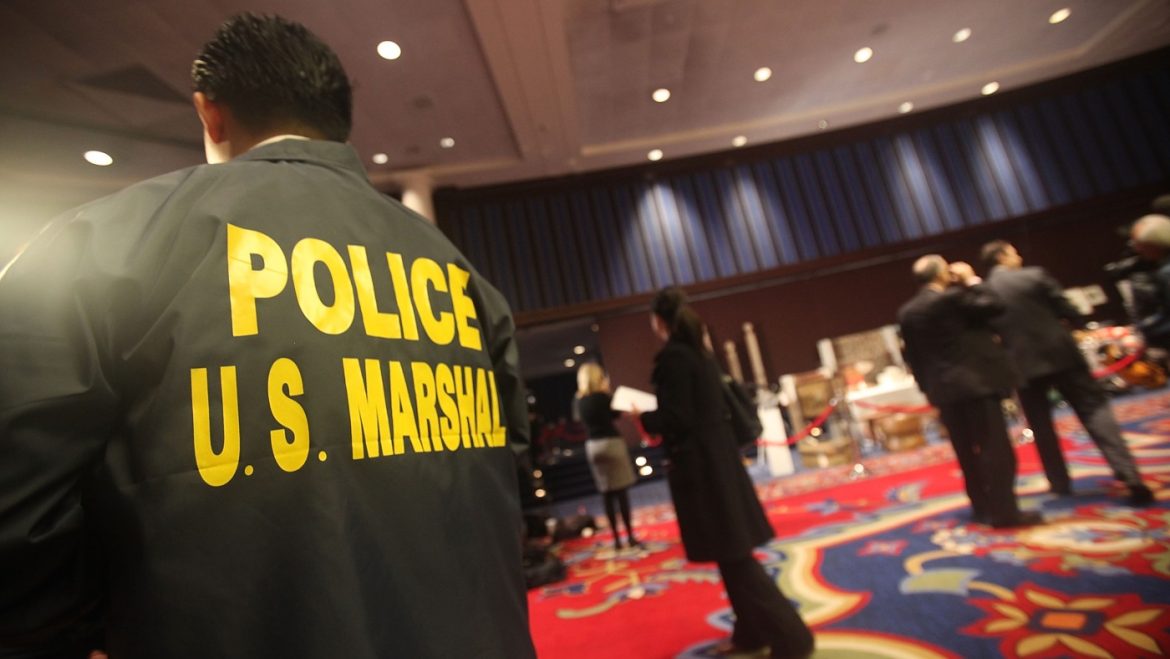Strengthening Judicial Security: Democrats’ Move to Shield Judges from Executive Influence
The U.S. federal judiciary stands at the crossroads of significant political tension, as threats against judges intensify alongside concerns about executive branch interference. In response, Congressional Democrats have introduced legislation aimed at transferring the U.S. Marshals Service (USMS) from executive branch control to the federal judiciary. This legislative effort seeks to insulate judges’ security from political pressures, ensuring that judicial independence remains uncompromised in an increasingly polarized climate.
The Urgency Behind the Proposal
The catalyst for this legislative push is twofold: a surge in threats directed at federal judges and anxiety over the potential misuse of executive power to influence judicial protection. Senators and House members from the Democratic Party have expressed growing concerns that the USMS, which currently falls under the Department of Justice within the executive branch, could be influenced by political considerations. Such influence could undermine the impartial enforcement of security measures, especially in cases involving contentious rulings against presidential policies.
Recent incidents have underscored the fragility of the judiciary’s safety infrastructure. Judges have encountered escalating intimidation campaigns, including overt threats and calls for impeachment, which amplify the risk that political agendas might compromise their protection. The Democrats’ bill intends to fortify the marshals’ allegiance to the judicial branch rather than to the president or executive officials, thus avoiding any conflict of interest in providing unbiased security.
Historical and Political Context
The backdrop to this legislation includes ongoing clashes between the judiciary and the Trump administration, marked by contentious court rulings that have blocked or slowed presidential policies. The judiciary’s independence has increasingly become a battleground for broader political disputes. For example, Democratic appointees occupy a substantial portion of federal judgeships in some states, while Republican appointees dominate others, reflecting the politically charged environment in which federal judges operate.
Amid this atmosphere, some Republican leaders have proposed measures to curb the judiciary’s influence, including attempts to limit court funding and consider impeachment for judges perceived as obstructing the administration’s agenda. This escalation fuels Democratic efforts to protect judges and reinforce the separation of powers as envisioned in the Constitution.
Why Shift the U.S. Marshals to Judicial Control?
The U.S. Marshals Service plays a critical role in safeguarding federal judges, courthouses, and judicial proceedings. Since it reports to the Attorney General, who in turn answers to the president, the possibility exists for executive political considerations to affect marshal deployments and protective priorities.
By shifting oversight to the judiciary, Democrats aim to:
– Ensure Neutrality: Judicial control would prevent the executive branch from exerting influence over marshal activities. This guarantees that protection decisions serve the judges’ security needs rather than the administration’s political interests.
– Enhance Security Funding and Coordination: Judges and judicial leaders have warned that current funding for security is insufficient amidst increasing threats. Direct control may streamline requests and resource allocation tailored explicitly to judicial needs.
– Preserve Judicial Independence: In a constitutional system predicated on checks and balances, insulating judges from executive branch entanglements preserves the courts’ role as impartial arbiters, unafraid of retaliation or political pressure.
Challenges and Opposition
This legislative effort faces ideological resistance chiefly from Republican lawmakers who view it as an unnecessary power grab by Democrats or a politicization of security agencies. For instance, Senate Judiciary Committee Chairman Chuck Grassley has emphasized the importance of respecting jurisdictional boundaries and maintaining executive authority in matters of national security and law enforcement.
Opponents argue that the executive branch is well-equipped to manage the USMS and that realigning oversight could hamper coordination, reduce flexibility in security responses, or politicize the judiciary itself. They caution against reforms that might disrupt established balancing mechanisms between government branches.
Judicial Security Amid Rising Threats
Federal judges themselves have sounded alarms about increased hostility, ranging from protests to assassination attempts against Supreme Court justices’ families. Despite these risks, some congressional Democrats have voted against additional security funding for the highest court’s members, reflecting internal tensions over how best to allocate resources and protect judges without escalating political conflict.
These safety concerns highlight an urgent need for clear, depoliticized security protocols. Proposals like moving the USMS under judicial control are part of a broader strategy to create institutional safeguards that prioritize the physical safety and functional independence of the judiciary.
Broader Implications for the Separation of Powers
The struggle over judicial security is emblematic of a larger question about how the branches of the federal government interact and constrain one another. History reveals that attempts by presidents to sideline or intimidate judges—such as President Franklin Roosevelt’s challenged efforts to reshape the Supreme Court—have met institutional and public resistance to protect constitutional order.
Enshrining the USMS within the judicial branch would represent a milestone in affirming judicial autonomy. It would serve as a bulwark against executive overreach, reinforcing that judges are to be shielded not only physically but also institutionally from political retaliation.
Conclusion: Safeguarding Justice Through Independence
The Democrats’ proposed bill to transfer the U.S. Marshals Service to judicial oversight reflects a critical response to an increasingly volatile political environment. It strives to depoliticize the vital function of protecting the nation’s judges, thereby upholding the judiciary’s independence — a cornerstone of American democracy.
By strengthening institutional protections and recognizing the unique vulnerabilities faced by judicial officers, this measure aims to secure justice not just in theory but in practice. In doing so, it reaffirms a profound principle: that the rule of law must stand unshaken by the winds of political conflict, safeguarding judges so they may freely interpret and apply the law without fear or favor.


